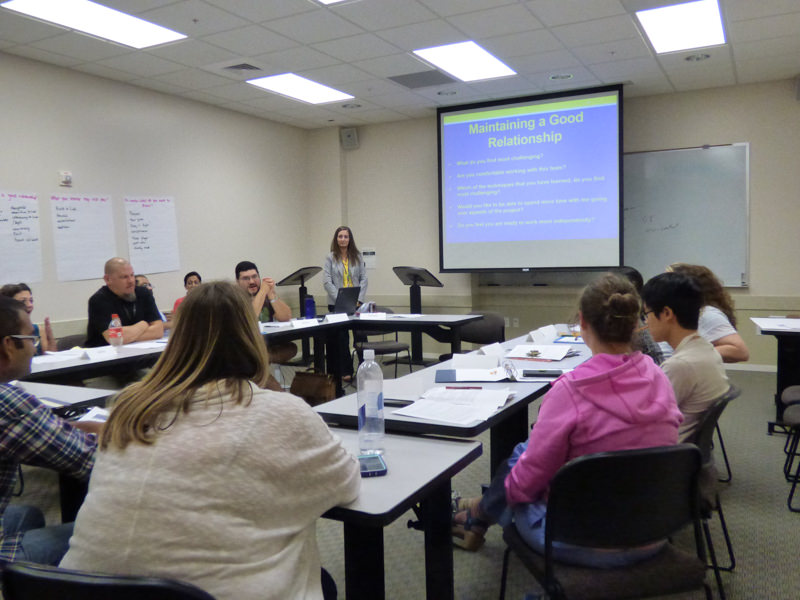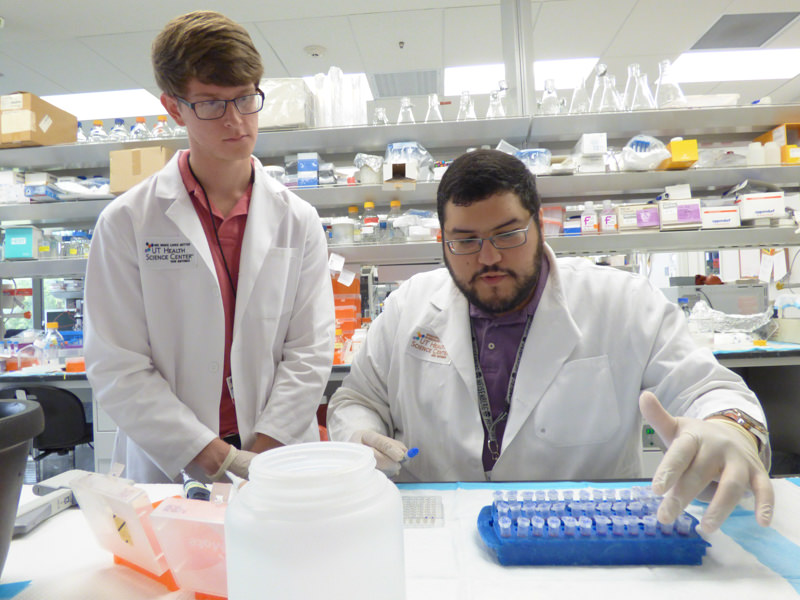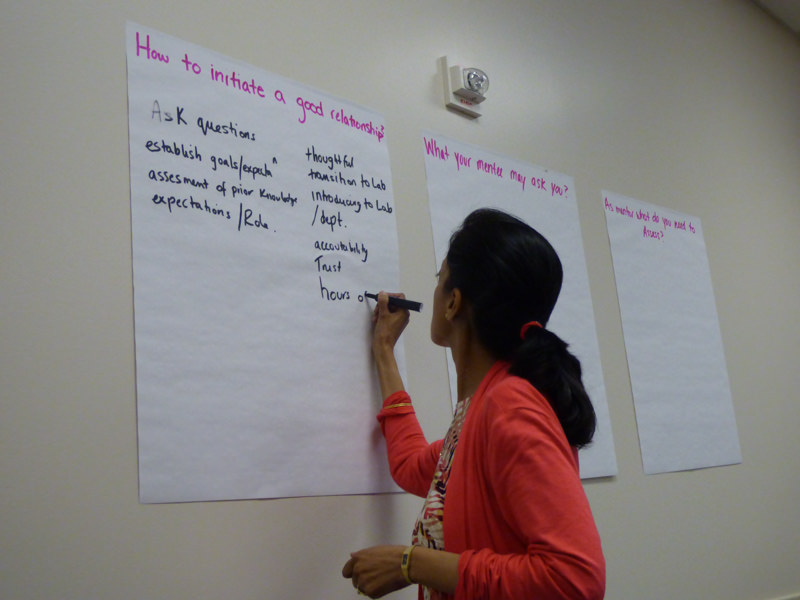Entering Mentoring Helps Train Next Generation of Mentors

“Being a mentor is a lifelong learning process,” said Dr. Alex Martinez, a postdoctoral researcher in the Department of Pharmacology in Dr. Andrea Giuffrida‘s lab. “I think it is important to play a role in
the professional development and growth of young scientist at all levels from high school to graduate school.”
In order to help prepare the next generation of graduate
students, postdoctoral fellows, and early career faculty, the Office of Postdoctoral Affairs created Entering Mentoring, a series led by Drs. Linda McManus, Teresa Evans, and Shamim Mustafa that introduces effective strategies for successful mentoring.
“The value of this group is that it gets them to think about what it takes to be an effective mentor and what makes a great mentor,” said Dr. McManus, director of the Office of Postdoctoral Affairs.
Examples of discussions include how to initiate a good relationship, questions to ask your mentee, and barriers to effective communication.
Dr. Bridget Ford, a postdoctoral researcher at the Research Imaging Institute said that the course has been great to help her learn tips to improve mentor/mentee relationships.
“One thing I’ve learned not to do is hover over a student in the lab,” Dr. Ford said. “You have to let them figure it out for themselves sometimes.”

Dr. Jesus Segovia, a postdoctoral researcher in the Department of Microbiology & Immunology, said that it’s critical to explain to the mentee why they are there in the first place.
“You have to take a step back and explain why we are studying that one protein, why we are using western blots,” Dr. Segovia said. “If the student doesn’t see the bigger picture, it’s hard for them to understand the importance of their work and the impact they are making.”
Dr. Evans spoke about the use of individual development plans (IDP) and a mentor/mentee compact to help communicate goals and expectations.
“These tools allow you to work with your mentor in astrategic way,” Dr. Evans said. “You should also not feel like you need to be their only mentor, a really important tool of being a good mentor is realizing when you are not the expert and finding someone else to help fill that role.”

Dr. Mustafa, the course director of the program, explained that especially in the beginning of a new relationship, it’s important to go over roles and expectations.
“It’s also really important to give the mentee ownership from the start like letting them discuss the outline of the project at the next meeting,” she said. “This helps build confidence.”
Dr. McManus said that because the series is only a four-week program, it’s not a comprehensive overview of mentoring.
“The workshop really provides a venue for people to think about mentoring,” Dr. McManus said.
“Mentoring is an experience and each mentor-mentee relationship is different so what we can do is prepare trainees with the skills to help that relationship be as successful as possible.”
To see the full schedule of when Entering Mentoring is offered, click here.
